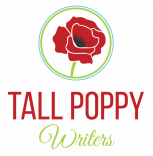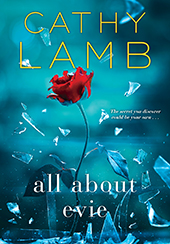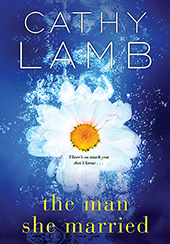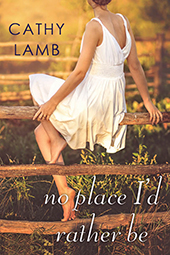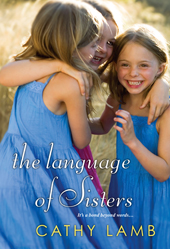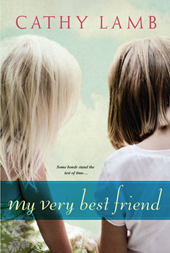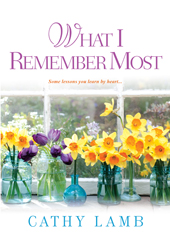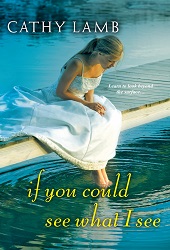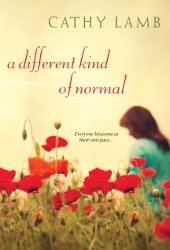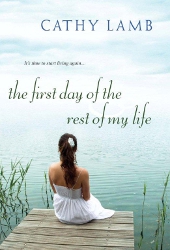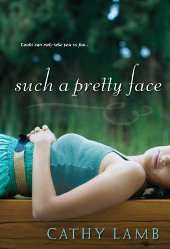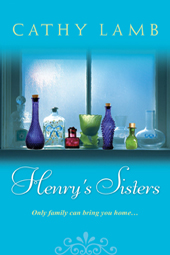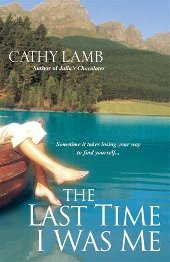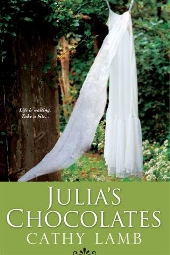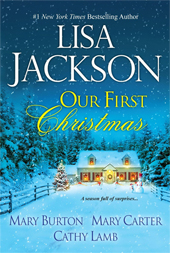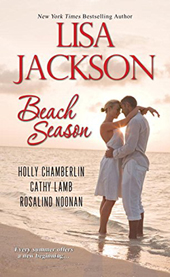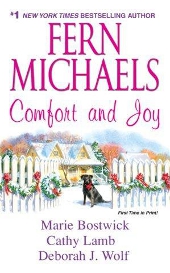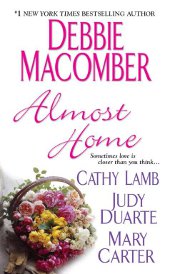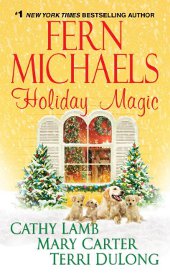Search Results
June 01, 2014
By: Lamb5
Category: Uncategorized
 1. Write only the scenes that you “feel like” writing, as if you are some zen loving hippie and will do what the wind calls you to do, what the rainbow requests, what the chirping birds inspire you to write. You will then have a giant mess, in non – chronological, senseless order, that you will have to cut and paste and cut and paste until you want to bash your head through a wall, like me.
1. Write only the scenes that you “feel like” writing, as if you are some zen loving hippie and will do what the wind calls you to do, what the rainbow requests, what the chirping birds inspire you to write. You will then have a giant mess, in non – chronological, senseless order, that you will have to cut and paste and cut and paste until you want to bash your head through a wall, like me.
2. Spend all your time daydreaming about other things that are pleasant and delightful and not writing your book, and then tell yourself that you were doing “research.” When your deadline is looming like a sharp toothed pterodactyl, you will be working sixteen hours a day, chugging coffee and ice cream. It’s ugly. Avoid it.
3. Convince yourself that you should hang out with fun girlfriends instead of work so you can get more ideas for your book. Soon you will have gained ten pounds because your fun friends like to eat fun food at fun places and you go along with all this fun – ness because you are a sap who is dragging her ass instead of writing.
(DO REMEMBER, friends, this is an article on what writers SHOULD NOT do!)
4. Change your mind about your main character mid way through so you have to go back to the start and “fix” her.
 5. Decide in the sixth edit that you are sick of one of your other characters for an inane reason and delete him or her out along with 20,000 words. Now you have to go through the whole blasted novel, yet again, and make sure not one single hint of that character is in the book, always a brain splitting job.
5. Decide in the sixth edit that you are sick of one of your other characters for an inane reason and delete him or her out along with 20,000 words. Now you have to go through the whole blasted novel, yet again, and make sure not one single hint of that character is in the book, always a brain splitting job.
6. Become addicted to the New York Times. Pretty soon you’re composing letters to leaders of far off, primitive countries of the world detailing exactly what they need to do to advance into the 19th century, what are they, stupid? and you’re actively engaged in debating with YOURSELF OUT LOUD what YOU would do if you were president. It’s ridiculous. I’m ridiculous.
7. Spend an inordinate amount of time debating, with your Invisible Friends, what book you should read next, then after that, and what should be read after that? Download more books than you can ever read. Cackle crazily while you do it.
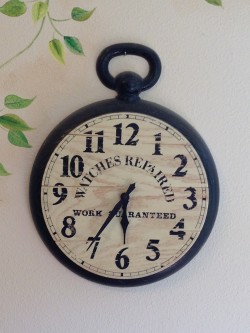 8. Write an enormous 152,000 word book, knowing you’ll have to edit that sucker twelve times, and ask yourself if you want to be sane at the end of it, or not. If not, then go ahead and write it. If you treasure sanity, don’t do it. Become a florist. Roses are calming.
8. Write an enormous 152,000 word book, knowing you’ll have to edit that sucker twelve times, and ask yourself if you want to be sane at the end of it, or not. If not, then go ahead and write it. If you treasure sanity, don’t do it. Become a florist. Roses are calming.
9. Decide that everything in your life has to be settled and done before you start writing. It is a good way to start writing by midnight EVERY SINGLE *(&%&U*(& NIGHT.
10. Take time off like I did. I took weeks off recently. Weeks. I have never taken weeks off work in my entire life and I am 47 years old and started working when I was fifteen. Usually I wait four days between finishing a novel and starting another one. I grew up Catholic, with an “idle hands are the devil’s play things” mentality, so laziness didn’t go over well in our house. In fact it was forbidden, so work is second nature to me.
But, oh no. I had to go and take a Cathy Sabbatical. Now I know what retirement is going to feel like. I currently want to retire immediately and watch my hydrangeas and rhododendrons grow, but I can’t. Woe is poor me and my twisted imagination.
Back to work, dear friends! Cheerio! Bon chance, tra la la, adios and all that. Good luck to you, you crazy people, I’m going to have a melt down.
No Comments →
July 09, 2013
By: Lamb5
Category: Uncategorized

Do not let your odd cat distract you from your writing. Like mine. She meows at me and expects me to meow back. So I do.
It would be nifty if I could live the life of my vision of a writer.
I imagine bang – up, mega successful writers in their organized offices overlooking a pristine lake where they scribble away all day, the words flowing, the blue herons landing smoothly.
Or they’re in their beach house. They watch the sun rise and set, smiling serenely, seagulls cawing, a cup of peppermint tea nearby as their story pours out of their brilliant brains.
Or they visit their family’s rustic cabin in the woods with comfy red plaid blankets, wandering deer, and a hunky man who moved in down the lane with whom they have a brief but mind blowing “writerly affair.”
Oh yes. I imagine the life of a writer to be filled with words, books, imagination, excellent views, romantic struggle, and flowing tequila.
The truth is, unfortunately, harsh.
I know a number of writers.
NONE have a clean office. In fact, many have their “office” on their dining room table. They push the kids’ homework out of the way, the dead and hardening oatmeal, the odd cat, and write.

A beautiful view helps, but don’t depend on it. Sometimes you have to write leaning against your kitchen counter while you’re making peanut butter and jelly sandwiches. It is what it is.
I only know one who owns a beach house. She goes there to regain her sanity. If a seagull bothered her too much she would probably shoot it.
I know of no one who has a cabin in the woods or had a “writerly affair,” with a hunky guy down the lane. Most of the writers I know are boring married ladies like myself. A few are in hot – flash hell like me. This is not conducive to a passionate affair. Also husbands do not generally approve of “writerly affairs.”
I don’t know any writers who slam down tequila. Why? Because we have to write the next day. Hangovers and writing only sounds romantic if you’re Hemingway. And his hangovers were no more romantic than anyone else’s, he simply had them out on a boat.
Plus, I rarely drink. I quit – almost completely – when I was twenty after a bad round of tequila myself. This makes me no fun in the drunken writers department.
Truth is, all the writers I know have some very, very heavy responsibilities. Children. Jobs. Spouses. Sick parents. Illness. Divorce. Bad dates. Addictions to chocolate and ice cream. Difficult mother in laws. Teenagers. You name it, they have it.
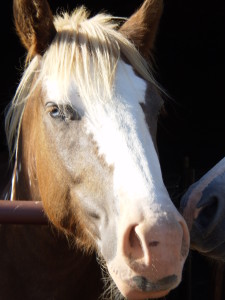
Get out into nature and go ride a horse.
But I believe it’s important, when you’re a writer, to take time out to BE a writer, at least once a week. You need to take that cool/introspective/dreamy image of being a writer and live it.
How do you do that?
Keep a small notebook with you to jot down what you’re thinking, story ideas, or even list the reasons why you hate your ex husband or your skinny, prissy neighbor down the street. You can use your ridiculous and destructive hatred for ideas later. If you feel like committing a crime, write that down, too. Who knows? You might become a crime writer. Do you like thinking about aliens, mummies, or gargoyles? Good. Write your plot down. Who knows where that could lead?
Make friends with writers in your town or over facebook or writer’s groups. Talk shop. Do not make friends with the negative or whiny wanna be writers. They’ll drag ya on down to the sludge. Go for the wild ones teetering on the edge. The thinkers and rebels. The ones who have opinions different than yours and a thought process that is jagged and funny.
If there’s a cool conference you want to attend, by all means, go. You can learn a ton and meet people.
Take a writing class at a university or a community college. I LOVED the classes I took. You’ll meet people you will never meet in your own circle, and this is always good. Same people, same ideas. Go forth and chat.
Drive somewhere totally new, find a coffee shop, slug down caffeine, and write.
Travel. Photograph. Sketch. Go to plays and musicals and the symphony. Writers are artistic. Work on being artistic. You do not need dreadlocks to do this, but you could grow them if you want.

Travel. Even an hour out of your town will give you a new perspective. Or go to Rennes, France, pictured here. That was fun. They have great bread.
Say hello to nature. I run about four days a week in a forest. Helps my head. Go to a lake, the mountains or a beach. Go to a field. But get thy ass out there. It is hard to be creative when you’re inside all the time, surrounded by the same four suffocating walls smashing in on you.
Read like a fiend. Read in different genres and enjoy what you read, but study it, too. Only read the best authors you can find, and then figure out why you like them. If you read crap, your writing will be crap. Be CAREFUL.
Read brain – cell popping writing books, too. Jessica Morell. Annie Lamott. Natalie Goldberg. Julia Cameron. Read Writer’s Digest. I just started getting that magazine, and it’s full of amazing advice, even for someone like me who has been in the trenches of this business for years.
Walk. Walk without your ipod, or with it. Write in your head. Think creative thoughts. Go away from your problems and think about your book only. Dedicate that time.
Journal, baby, journal. First, verbally vomit on your journal. Write down what you’re thinking or worrying about. Then, write down your character’s name in the middle of your journal and jot down everything you know about her. Write down any problems you’re having in your book, then write down ALL ideas – no censoring – on how to fix them. Let that pen flow over the pages.
Write all the time. It doesn’t have to be good. It doesn’t have to be publishable, if it’s crap you can burn it later in a bonfire and run around it naked. Just write.
Remember that you are a writer, no matter what rejections are hitting you in the face. You need silence. You need time alone. You need to listen to your own thoughts. Writers take time out of their chaotic/busy lives to BE. Just be.
Now go be.
No Comments →
May 15, 2013
By: Lamb5
Category: Uncategorized
I am asked all the time how one should go about getting published.
Here is my answer.

Tulips have nothing to do with publishing unless you are writing a tulip book.
You need to write something good. Really good. You need to write something that a publishing house believes will sell.
So work, work, work on that story of yours. Study writing. Go to writing classes. Study your favorite books and ask yourself why you like them.
Read Bird by Bird by Anne Lamott. On Writing by Stephen King. Writing Out The Storm by Jessica Morrell. And read Julia Cameron and Natalie Goldberg’s books. See my other articles titled, “For Writers” in this blog.
Study more. Write more. Read more. Begin again. Edit, edit, edit.
When you’re ready to submit your work, you need to get yourself an agent.
Should you finish writing your book before you try to get an agent?
Probably anyone else, in any other writing forum, in any magazine article or in any speech about how – to – publish, here or on Jupiter, will tell you to write a full manuscript before sending the first chapter off to an agent for his review.

Always write from a new perspective.
This is enormously good advice in many ways. Writing a full book before sending it to an agent makes you nail down those characters. It forces you into the writing process.
You learn about pacing, character arcs, character development, climaxes, word choice, descriptions, dialogue, narration, voice, and a hundred other things, including whether or not you are capable of sitting your butt down and finishing a book. All excellent points.
I, however, will not tell you to write a full book before sending the first chapter off to an agent to review.
Why? Because of my own personal and miserable history which involved piles of rejection slips. After months spending time writing full manuscripts, they would be rejected. Repeatedly.
I wanted to bash my head through a wall. All those months of work…trashed. For nothing.
Looking back, the writing was bad. The idea was bad. The characters were bad. The organization and dialogue and narration were bad. Bad, bad, bad. I’m surprised I got as far as I did in my first go – round of trying to publish with Mills and Boon/Silhouette.

Write with color
On my LAST attempt at writing a book, and I completely changed genres to women’s fiction, I wrote the first 40 -ish pages of my book, Julia’s Chocolates, no more. I sent it to four agents and a famous editor. The famous editor never responded. All the agents, based on those first forty pages, requested the full manuscript.
I waited until my favorite agent – the one I have now – asked for the full manuscript, told him I needed to do “a little editing,” and worked my butt off for about four months, writing from ten o’clock at night until two in the morning, while taking care of three young kids, a house, and working a freelance writing job.
I used to edit Julia’s Chocolates while my kids were playing at Chuck E Cheese and McDonalds.
I sent the full manuscript to my favorite agent, blurry eyed and exhausted. He loved it and I signed with him in a couple of weeks. A few weeks after that he sold Julia’s Chocolates as part of a two – book deal to the publishing house I’m with now. I was ecstatic and I still love both my agent and my editor.
My advice is to write a bang up 20 pages. Yes, I did say 20. Twenty.

Get outside. It’ll help you write.
Write a short cover letter describing the plot in the first two paragraphs, the ending paragraph should be about you. Get a book on how to write query letters. Loosely follow it. You can send a short synopsis of the book attached at the end of the first twenty pages.
So your packet out to agents, online or by snail mail, looks like this: Cover letter, one page. Twenty pages of your story. Synopsis, one page.
An agent will read the first paragraph, MAYBE the first page, of your book, before he tosses it if his attention is not grabbed. If he likes the first paragraph, he reads the first page, then the second page, then the third.
He knows QUICKLY if your book is something he can sell to a publishing house. They’re experienced, they’re smart, they’re efficient. Never forget: They are BURIED in manuscripts.
Why only 20 pages? Because then you won’t waste your time. If the subject matter/characters of your book are not appealing, if it is not going to sell, you have not wasted a year of your life writing a book that no publishing house wants. With twenty pages you have limited your loss of time and effort.
The brutal truth is – and here I will say something that will be offensive so put on your tough alligator skin – what you’re writing may not be anything anyone wants. It could be the topic. Could be the market. Could be the wildly insane competition out there.
It could be the writing. It’s just not good/intriguing/gripping/fun enough. Yet. It may never be for that particular idea.

Spend a lot of time daydreaming if you want to be a writer.
If no agent wants to represent your work after repeated rejections move on to the next story in your head. You may have to eventually change genres, like I did, which worked splendidly.
If an agent likes those twenty pages, he will ask you for the full manuscript. This is where you write your heart out, like I did, above. Make it the best writing of your life. Give up sleep. Get up early, go to bed late, write during the weekend.
You may have to edit that sucker four or ten times. I edit all my books eight times before I send it the first time to my agent and editor and I have been writing for years. Address the stuff I mentioned above about character arcs, word choice, description and PACING. Pacing is key. Too slow and you’ll put people to sleep.
Many people will say that this approach, where only 20 – ish pages are actually done when you first send it to an agent, will result in a rushed, poor manuscript if it’s requested by an agent.
Here’s the key: Don’t send in a rushed, poor manuscript. Duh. Send in an excellent manuscript. The very best you can do.
Yes, your manuscript arrives later than the agent wanted but, trust me on this one: If it’s a heckuva manuscript, he won’t give a rip. He’ll lean back in his chair, throw up his arms, look to the ceiling as if in “Hallelujah,” and try to sell your manuscript for as much as he can get.

See how these rows are nice and neat? Writing is not like that.
Your cover letter when you are finished with the requested manuscript is simple: Dear so and so, thank you for requesting my full manuscript I LOVE VAMPIRES AND GOBLINS AND CHOCOLATE. The manuscript is enclosed. I will look forward to hearing from you. Sincerely, YOUR NAME.
His letter, where he requested the manuscript, goes below this to remind him that, yes, he did ask for your work.
Once your send in your full manuscript to the agent, if he likes it and thinks he can sell it, he will call or email you. It is unlikely that he will send a smoke signal.
If you still like that agent after that conversation, you will sign a contract with that agent. This means he will represent your book to the publishing houses, which basically means he will contact the editors he knows, either at lunch or a cocktail party or a meeting or a bar, and talk your book up. He will contact editors in houses who sell your type of genre.
Hopefully an editor is interested. If he is, the agent will send the editor your manuscript. If the editor believes his house can sell it and make money off it, he will then buy the book. This involves more contracts. All the contracts are in legalese and are quite long and detailed. They will bore you silly. Get an attorney to review it.
The contracts from the editor/publishing house will go through your agent. You will sign the contracts if you agree to the upfront money the publishing house is offering, and the royalties they offer after the book sells and your upfront money is paid off.
Please people. The number of writers who get upfront six figures – plus is tiny. Miniscule. Do not expect anywhere near this, especially for your first book. I know writers who get all the money they can upfront, because they know they will earn no royalties. Be aware that the vast majority of writers cannot make a living writing, that’s why they keep their day jobs.

Don’t forget to create a compelling setting in your story.
Remember, you will also give a portion of your earnings to your agent once you are under contract with a publishing house. All monies go from the publishing house, to the agent, then to you. Royalties are paid twice a year.
Once the contract is signed, you’ve sold your book. Hopefully there will be more contracts to come and you’ll be on your merry way. I wish that for you, I truly do.
Do you need an agent? Unless you are writing category romance, like Silhouette or Harlequin, or you’re self – publishing, more on that later, you need an agent. An agent acts as a screener. If you cannot get an agent to represent you, the general rule is that the publishing house won’t look at your work. In other words, if an agent didn’t like it, they won’t either.
How do you contact an agent in the first place? If you’re in writers’ groups, agents’ names will start floating around. Pay attention to those names. You might also meet agents at writing conferences or workshops. Your best friend’s brother’s half sister may be an agent.
Or, pick up this book, “http://www.amazon.com/2013-Writers-Market-Robert-Brewer/dp/1599635933/ref=sr_1_1?s=books&ie=UTF8&qid=1368413571&sr=1-1&keywords=2013+writer%27s+market and find an agent in there under your genre. If you’re writing romance, look for romance book agents, writing thrillers, go for agents representing thriller writers.

Weather can enhance tension and drama in your story so use it.
Everything you read/hear will tell you to send your partial manuscript to one agent at a time. Don’t follow that rule either. As you can see, I don’t really like rules. Too confining.
Many agents will never, ever respond to you or your pages. Other agents will take months to read it. With others, the rejection slips will come back so fast, you will think the agent didn’t even read your book. And, he may not have. He may not be taking on clients. Or, he may have read the first page and thought it sucked.
People worry about mass mailing their partial manuscripts to agents.
I will be honest with you, if you get ONE reputable agent who is interested in your work, you should click your heels together in joy. I have heard unpublished authors say, hands wringing, all uptight, “What would I do if I send it to more than one agent at a time and they all want it?”
This happens so rarely, stop fretting.
If you are very fortunate and two agents ask for the full manuscript, send it to your favorite agent first, wait a month, send an email to see if they’re interested, and if they don’t respond in a timely manner, send the full to the second agent.
So, out with ten copies of your first twenty pages to ten agents. Wait a few weeks, send it out to another ten agents. Make sure you are sending your work to good, honest agents. Go to this website http://pred-ed.com/ to check.

You must have at least one character that the reader can root for, care about, and like.
You will probably be surprised at how fast the rejections come back. It is disheartening, I know it. I lived it. Bang my brain against the keyboard, this part is not fun.
But buck up on the rejections or get out of writing. Rejections are a part of being a writer. Cry. Throw a fit. Take thirty minutes then get over yourself and your pride and your belief that your book should be Number One on the NY Times bestseller list by Tuesday.
If your book keeps getting rejected, analyze it without emotion and figure out what’s wrong with it. You must put your ego aside. Do not give it to your mother or wife to analyze it, they are too close to you and probably won’t be honest.
Consider paying an editor, like I paid Jessica Morrell, a fab editor, to tell you the truth about your work. http://jessicamorrell.com/
(Side note: Do not hire Jessica if you want her to flatter you and tell you that your book is perfect. She is blunt and honest and knows her stuff. Most of the time she is polite, but not always. Only hire her if you want to hear the truth, you won’t get defensive, you want her criticisms, you’re okay with her shredding your prose, and you are mature enough and smart enough to turn around and use the criticisms to write a better book.)
A Few More Thoughts:
Reputable agents NEVER ask for up front money or reader’s fees. If yours does, drop him and move on.
Don’t pay someone to print your books in traditional book form, please, unless you like losing money. In almost all cases, this will not work out for you financially. Don’t write to me and tell me about someone who printed their own books and made piles of money. There are a million people behind him who LOST money. Thousands of dollars. The ones who make money are just shouted out louder by the self publishing industry in the hopes of convincing you that you will be that lucky guy who will also make piles of money.

Word choice is critical. Make every word count, every word MUST have a reason for being in your book.
I have heard some interesting success stories about people who self published their work with Amazon. It’s intriguing. Remember, though, you have to have a reader base to make money on this. There has to be people out there who want to read what you wrote. Be prepared to market and do PR work. For every one person who makes a lot of money on Amazon self publishing, there are thousands who don’t make twenty bucks.
You must keep writing if you want to publish.
You must keep reading excellent books, and learning from them, if you want to publish. I am still learning. Still studying. Still critically analyzing my work, every word of it.
If you want to make a living at this, you almost always need to be with a big publishing house, not a small printing press who will pop off 3000 copies and hope you sell 1000.
If the same manuscript repeatedly gets rejected, it probably is not going to sell. Do not write to me and tell me about Harry Potter and Gone With The Wind and how often they were rejected before becoming best sellers. Once again, a huge hit getting rejected fifty times initially happens about the same amount of times that the moon turns pink.

Use a lot of dialogue. It moves the story along and shows the reader who the character is.
If your manuscript has been rejected forty times, even thirty times, you have to face the harsh truth that it may never publish. There may be something inherently wrong with your work. Never fear! Start a new book. Change genres. Learn from it. Get back out there.
I recently listened to a woman, who I will call Dixie, read her book aloud at a book fair. I have known this woman for at least ten years. Ten – plus years ago she wrote her book. It has never sold. She is still hung up on it, still believes it will sell. It will never sell. She should have dropped it and moved on years ago. Do not be a Dixie.
Understand that this is an incredibly competitive industry. There are so many freakishly talented authors out there it makes me nauseous. You are competing against them. Never forget it. Bring your best to the table.
You must live a full life if you want to publish. Love. Laugh. Be with family and friends. Dance. Sing. Go have adventures. For heaven’s sakes, travel. Listen to people. Think new thoughts. Open your brain up to new ideas. Read the newspaper. Take an art class. Try photography. Go to the mountains. Play in the waves. Make new friends. Be interested in others. Be interesting yourself. Be compassionate and kind. All this will fuel the writer in you.
Comment (1)
February 11, 2012
By: Lamb5
Category: Uncategorized
Today on Facebook someone asked me how I get all my “off the wall” ideas.
My answer? I watch and I listen, and I watch and I listen.
I take a spark of an idea, whirl it around, juggle it, give it one more spin, and it’s on the pages…
For example…
1. In my novel, Henry’s Sister’s, a young teenage daughter named Kayla is exploring different religions, much to her staunch Catholic mother’s dismay. Kayla is currently wearing a full length, head to toe, black burka and her mother, Cecilia, has just about lost her head over it.
The spark for the teenage rebel came from a close friend of mine whose son was trying out different religions. Mormon, Lutheran, evangelical Christian. He had even made a shrine to Jesus and genuflected in front of it.
My friend is Jewish.
2. In Julia’s Chocolates the women have Breast Power Psychic Night and Getting To Know Your Vagina Psychic Night, etc. I needed the women to have a reason to get together, but not the usual chat – fest. I had a bra on that day. (As usual). It wasn’t too comfortable. I took it off. Hence, taking off a bra, hence Breast Power Psychic Night.
3. In The Last Time I Was Me, Jeanne Stewart drops peanut oil into her cheating boyfriend’s condoms knowing he will use them with another woman. The cheating boyfriend is allergic to peanut oil. How did I come up with that? I was super mad at my husband one night.
He is allergic to nuts.
4. In Such A Pretty Face Stevie Barrett needs a second job. She dresses up as a giant chicken for a chicken restaurant and stands on a street corner waving at passing cars.
I saw a chicken doing the same thing in my neighborhood one afternoon. I thought that if things got bad, I could cluck around like that. I knew I’d make a good chicken. That night, it was in my book.
5. In The First Day Of The Rest Of My Life, a teenager named Shoney insists on using spray paint in the thick of the night to paint pictures of naked women on the backs of buildings and on any free wall in town he can find.
I was inspired by graffiti I saw in Portland and a renaissance painting in a museum that day of those naked, voluptuous women next to flying baby cupids.
6. In A Different Kind Of Normal, out in August, I have triplets who wear Halloween costumes. For example, they dress as bananas, lady bugs, dragons, and pirates. They refuse to wear normal clothes. This was inspired by my own children who dressed in some very creative outfits when they were young.
My son wore layers of clothes. He would often hang them up in the living room by hangars, as if the living room was his closet. I don’t know why he did this.
My oldest daughter wore only two dresses, switching off each day. One was from a garage sale, the other a hand me down. This went on for two years. No other clothes. My youngest daughter wore one ponytail on the side of her head, the other a braid. She also liked to wear a yellow tutu.
7. In Suzanna’s Stockings in the Comfort and Joy anthology, a woman rams her car into her own store, glass shattering, wood breaking, because she’s ticked off at her husband. I had a friend going through a divorce from a nasty son of a gun. I pictured her ramming her car through her husband’s shop. (He would have deserved it).
8. In Whale Island in the Almost Home anthology, there’s a character named Gina who is a pet communicator who is also obsessed with the care and safety of animals.
My sister loves animals and has rescued many horses, dogs, cats, and pigs. I soon had Gina sneaking into a barn of an abusive horse owner and stealing a skinny, ravaged horse and putting it into my main character, Chalese’s, dining room to hide it.
I would not put this past my sister. (Sister is pictured below.)
9. In A Very Merry Christmas in the Holiday Magic anthology, there is a minor character named Katie who is a devout Christian with many children but falls asleep in church every Sunday because of her husband’s escapades in bed the night before.
She and her husband play games called “the twister,” and “the hurricane,” and she sometimes has to wear a trench coat. One time her husband stood naked on top of the stairs and blew a duck whistle at her, as a “mating call.” She got dressed in her waders and suspenders, no shirt, grabbed a gun and started chasing her husband around the house as foreplay, while he duck whistled at her.
This was taken, and spun about a bit, from a story my cousin told me about a friend of hers and her duck whistling husband at the top of the stairs.
That’s how I got the sparks for a few of my off the wall ideas.
Remember writers: Watch and listen, watch and listen.
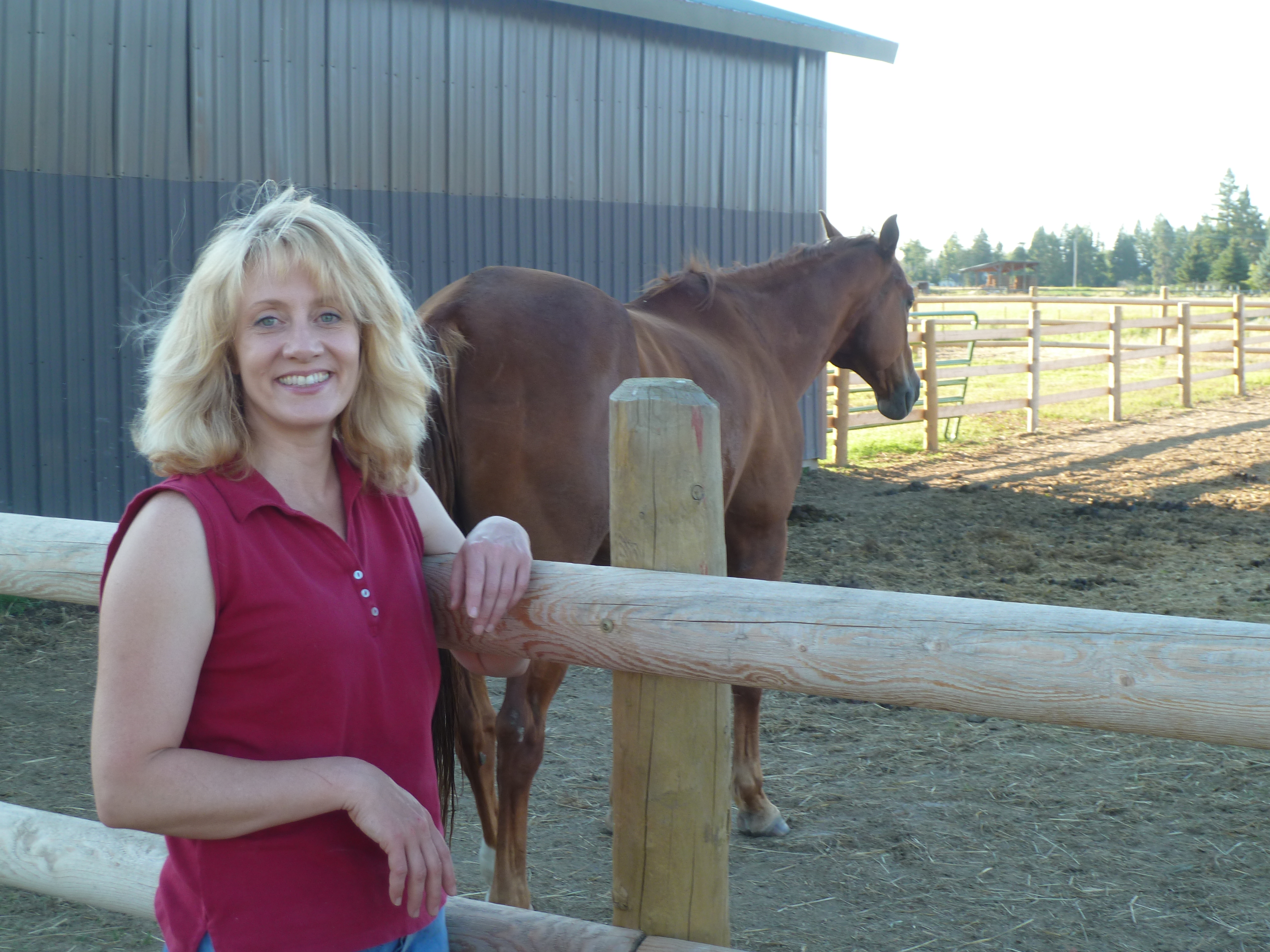
Comments (2)
December 18, 2011
By: Lamb5
Category: Uncategorized
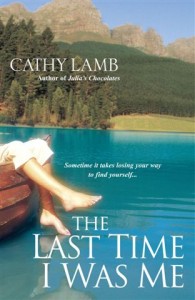 It was the pancakes.
It was the pancakes.
That’s how I came up with the idea for my book, The Last Time I Was Me.
Pancakes, hot maple syrup, and two gray haired women reading books.
I was sitting with my kids at an old fashioned pancake restaurant in my hometown. It was just us and the two women, both who were sitting alone, books in hand. They looked to be about seventy and I started thinking about them.
What were their names? Why were they alone? Did they like eating pancakes by themselves? Were they married and happy, married and miserable, divorced? What had happened in the first seventy or so years in their lives? What hopes did they have? What grief had they endured? Did life turn out as they had planned?
And, most importantly, at least for my purposes: What secrets did they harbor? Did they haunt them, or did the women dive back into their scintillating secrets periodically and enjoy every moment, delighting in the memories of forbidden love or crazy antics?
Aha!
I then had a vision of pancakes, a pancake restaurant, and women who have – ta da – secrets. As I later drove down a tree lined street in Welches, Oregon, near Mt. Hood, and saw several charming white houses, one with a blue roof along a river, the plot unfolded for The Last Time I Was Me in full, brilliant Technicolor, including Jeanne Stewart’s naked run along that river, a bar fight, and anger management counseling that has her flying like a bird and painting her body.
Need ideas for your books or characters?
Look around. Listen. Be quiet, be in the spot you’re in, and just be.
Be. That’s all you need to do.
How did I get my idea for Julia’s Chocolates? I had an image… an instant, crystal clear image of a white, fluffy wedding dress being tossed into a dead looking tree on a dusty, deserted street. That dress fluffed up into the air, and back down, up and fluff, and down again. Finally it caught on a dried finger -hook of a branch. The question that launched that book: Why is she throwing her wedding dress into a beat up looking tree?
I had my Julia. Then I gave her quirky, scared, passionate friends and an Aunt Lydia who had a pink house, a rainbow – painted bridge on her front lawn, and five foot tall ceramic pigs that were named after men who had ticked her off. I asked myself how I could get all those ladies together in an original way. So I invented Breast Power Psychic Night and Your Hormones and You: Taking Over, Taking Cover, Taking Charge Psychic Night. Getting To Know Your Vagina Psychic Night followed.
For my book, Such A Pretty Face, I knew already that I had a girl with a troubled mother. When I watched Storm Large’s brilliant play in Portland, she talked about her mother and their troubled relationship. In the midst of one of Storm’s rockin’ out songs, drums pounding, guitars banging, I had an epiphany: My character’s mother has schizophrenia. Boom. In the midst of the hard rock, the funny lyrics, and the darkness of the theatre, I had my story line.
The idea for Isabelle, in Henry’s Sisters, was based on a mood. My father had just died of prostate cancer and I was grieving. I was in a terrible mood. I gave my terrible mood to my character, Isabelle. At the same time, a conversation came up with me and a few girlfriends in my church about promiscuity, and how one of my girlfriends had such a hard time putting her past behind her, forgiving herself, and moving on. So, Isabelle formed into a character with a lot of bottled up anger, grief, and loss with promiscuity in her background. The question that launched the story: Why was she promiscuous?
I wrote from there. I gave her two sisters and a brother. I am from a family of three sisters and a brother, so I had a familiar family formation. But Henry, unlike my brother, is specially – abled. I decided to write a story about the beautiful impact Henry had on his whole family , inspired by the brother of a friend who was also specially abled. That brother had recently died and listening to my friend tell me about the love and kindness her brother brought to so many people was just tear jerking. I was also touched by a photograph of a specially abled young man with his father in a poster for Goodwill. I stared at that photograph for so long, amazed at the joy and peace on that young man’s face. So I had my Henry.
For ideas for your books, look around. Listen. Be open. Talk to others. Listen more. Take drives and listen to music you usually don’t listen to. Go on day trips to the beach, hike, head downtown, go to shows, plays, the symphony. Accept and embrace people’s differences, their walks with life, what hardships they’re going through, what triumphs they’ve had. Stroll along a river and daydream, drive to a town you’ve never been in before and where no one knows you. Be anonymous. It’s a safe place. Notice people. Watch people, not in a stalky way, of course, but watch them. Watch movies, study your ancestral history for cool family members, call an older relative and ask about her life. Always read newspaper articles about elderly people for the wisdom and guidance they can offer. Paint, draw, create. And read. Book after book after book, read.
Wishing you a rush of ideas for stories that will make your readers laugh and cry…
Comment (1)
October 20, 2014
By: Lamb5
Category: Uncategorized
Cathy Lamb: So, shall I call you T.E.? What is your real name?
Teri Woods: I know…sounds pompous, doesn’t it? Like who do I think I am, Batman? People call me Teri. I couldn’t publish under that name because there’s already a well-established writer…of mystery novels and others…publishing as Teri Woods. Teresa (my given name) sounds like a telemarketer is calling me, so my publisher and I decided to go with my initials. But, please, call me Teri.
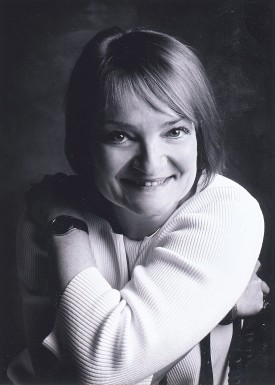 Teri, I love this line from your new book, “The Unforgivable Fix,” The killer won’t come for you, you fool. He’ll come for me.”
Teri, I love this line from your new book, “The Unforgivable Fix,” The killer won’t come for you, you fool. He’ll come for me.”
That just gives me the shivers, in a good way. Tell us what the story is about.
“The Unforgiveable Fix” is the third book in the Justice Series and continues the stories of Mort Grant, Chief of Detectives for the Seattle Police Department, and Lydia Corriger, a clinical psychologist in Olympia. Mort and Lydia’s paths crossed in my first book, “The Fixer.” I’d tell you all about that, but it would spoil the fun for readers new to the series. Suffice it to say Mort and Lydia share a secret that keeps them bound tighter than any blood line or romantic involvement could.
In this installment, Lydia tentatively resumes her private practice after healing from some serious scrapes in books one and two. She tries to start slowly, easing in with a few patients and some teaching as a favor to a friend. Soon she’s embroiled in a nasty bit of business that may cost her everything, including her life.
At the same time, Mort’s thrill seeking daughter, Allie, who’s been lost to the family for the past three years as she jets around the world playing consort to a global drug king pin, finds herself on the run from some very, very bad apples who are out to destroy her boyfriend by destroying her.
Allie runs back home and while Mort tries to save his daughter from both the Russian mob and the U.S. Attorney’s Office, he stashes her the one place he hopes she’ll be safe: with Lydia. Much tension, double-dealing, and mayhem ensues. And, as is typical in my books, nothing is as it seems.
Sheesh. I feel like I’ve been on a literary roller coaster ride already, holding my hat on my head and screaming. What a story.
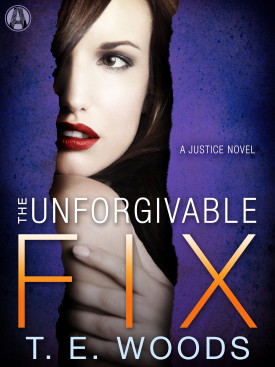 You seem so nice. Gentle. Kind. And then – scary evil. What draws you to crime, thrillers, killers?
You seem so nice. Gentle. Kind. And then – scary evil. What draws you to crime, thrillers, killers?
I’m a clinical psychologist and I specialize in profound behavioral and emotional dysregulation. Every day I get to work with people who do the most outlandish, destructive (and often self-destructive) things as they stumble toward some twisted idea of what would make them happy. I’m intrigued by that.
I like the way my patients take me by the hand and lead me to the edge of any manner of cruelties people are able to perpetrate against themselves or others. Very often the behaviors include crimes. Sometimes violent crimes. I think my writing is just a natural extension of what I see in my work-a-day world.
I’m sitting here in my kitchen nook, trying to drink my coffee, my mouth now hanging open, as I imagine your work day. I try to perfect my love scenes and you’re dealing, often, with criminals and they’re twisted, cruel thinking. And then you go home and make dinner…
Did you ever imagine, as a child, or a teenager, that you would be writing this type of book? Did you even want to be a writer when you were a kid? What triggered this genre?
I can remember a yellow notebook I had when I was young. Maybe seven or eight years old. I’d write little stories in it and anyone who wanted to play with me would have to listen to my story first. It wasn’t long before kids were bringing other kids by, asking me to read them my stories, too.
Of course I was happy to oblige. I recall thinking I’d keep that notebook my entire life and it would be the first of hundreds of notebooks I would fill.
You see where this is going, right? That little yellow notebook is nowhere to be found…I didn’t give it companions on the shelf…and I doubt I ever even filled it. I grew up poor and the notion of learning how to write just wasn’t an option. I was expected to study something that was sure to give me a chance to make an independent living.
So, I studied hard, went to college, and took a Bachelor of Science degree. Very practical. Then I went on to a master’s and Ph.D. in psychology. That path worked. I earn a comfortable living. But about six years ago, after I learned another scientific article I’d written had been accepted for publication, I wondered, quite out of the blue, if I could write anything creative. Maybe the little girl with the yellow notebook was tugging at my subconscious.
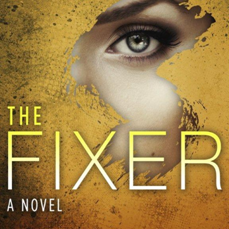 In the shower that morning a murder came to me. By noon I had my cast of characters. I came home after work, went to my office, and started writing. I remember my husband came home and poked his nose in, asking what I was working on. “I’m writing a murder mystery”, I said. Now, those words had never come out of my mouth before. Nor had I expressed any desire as an adult to write creatively. But there I was. And the writing opened a joy in me that spills over to all parts of my life.
In the shower that morning a murder came to me. By noon I had my cast of characters. I came home after work, went to my office, and started writing. I remember my husband came home and poked his nose in, asking what I was working on. “I’m writing a murder mystery”, I said. Now, those words had never come out of my mouth before. Nor had I expressed any desire as an adult to write creatively. But there I was. And the writing opened a joy in me that spills over to all parts of my life.
My novels may be twisted and dark, but the writing of them has brought me tremendous pleasure and light.
One of your characters, Allie Grant, has been the lover of, and I quote from your book, “One of the world’s most powerful and deadly men.” How did you do the research for this part? (Can you hear me chuckling when I ask this question?) And what research did you do to write the Russian mob realistically?
Oh, my! That was great fun! I read newspaper and magazine articles about the explosion of Russian gangsters following the fall of communism. I took particular interest in the sheer hedonism of their consumption. Those guys know how to indulge themselves.
Of course, they also know how to be brutal. They don’t rule with an iron fist…that would be far too delicate for their ideas of enforcing order. I’m also fortunate to have met several people who immigrated from Russia and learned how filled with hope people were following the collapse of the Soviet Union, only to have those hopes dashed when the authoritarian regime of the government was seemingly immediately replaced by the authoritarianism of the criminal oligarchies that emerged.
So, I took what I learned from my research, blended it in with the twisty cruelties I’ve come across in my practice, and spiced it up with my own sick imagination.
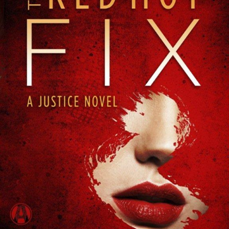 So you had a three fold force: The Russian mob, chatty criminals, and your imagination gone wild.
So you had a three fold force: The Russian mob, chatty criminals, and your imagination gone wild.
I love that The Fixer is a woman. She’s a hired gun in a home built like a fortress. Tell me what inspired this character? Any of you in her? Is she your alter ego?
The Fixer knows what it’s like to be unfairly treated and presumptively judged. I think all women can recall experiences like that in their own lives. The Fixer is interesting to me because she’s actually quite fearful. But when she’s championing the cause of someone else she’s blindingly fearless. She’s confident and strong when defending others, yet so wrapped in her own vulnerabilities she’s stunting her own life and limiting her own happiness.
But, man, I love how kick-ass she is.
I don’t know if she’s my alter ego…but I’ll cop to wishing there was more justice in the world. I’m confident in my non-violence, and The Fixer is unapologetic in raining violence down on those who clearly deserve it. So, I’m hoping there’s no overlap there. However, I do try to be an agent for fairness wherever I can.
What The Fixer and I do share is her address. While I live in Madison, Wisconsin now, when I was first married I lived in the house where The Fixer lives now. High upon a cliff overlooking Dana Passage. The islands and the mountains in the distance. Eagles and sea gulls. Cedar and Fir trees. It was heaven. Now, when I lived there it wasn’t an armed fortress and it didn’t have the supercomputer or NSA-worthy communication center that The Fixer has in her basement, but it was lovely.
When you’re not writing you are…
I’m living a life better than that little girl with the yellow notebook growing up in that rusted-out steel town ever could have imagined. I’m healthy and strong. I’m married 33 years to the finest man I know, and we’re still crazy for one another.
I’m playing with my dogs…well, actually serving my dogs, it is they who run the house. I’m enjoying “Wednesdays are Friends Days.” Every Wednesday afternoon I meet with a group of women to eat and laugh and support one another. Then I meet with another, smaller group of women to drink and laugh and support one another.
I hike, I kayak, I bike. I binge watch HBO series and read whatever I can get my hands on. I experiment in the kitchen. I sit in the breakfast nook and watch the birds in the feeder.
And I try to stay grateful. I’ve worked hard to build my life. And I know there’s a Universe that has shown me I’m not in this alone. For that I am eternally grateful.
For everyone who wants to write out there, but who also have day jobs, give them some advice on how to do both. How to manage the time, energy, and efforts while still finding time for family and friends and sanity.
You’ve answered the question in the asking. I’m asked a lot…I mean a WHOLE lot…some version of “How do you do all the things you do?” It’s all about managing time.
Here’s my advice to writers: WRITE. Write like you mean it. Write like it’s your job and you’re bucking for employee of the month. Don’t FIND the time to write. MAKE it. Schedule time to write every day. I don’t care if it’s an outline of a scene or ten pages in your novel. WRITE! Don’t buy into that goofy notion that you have to wait for the muse to strike. That’s just an excuse for not writing. Write and the muse will come. The ideas will flow at varying levels. The words will wax poetic one moment and fall flat the next. That’s okay. KEEP WRITING!
MAKE time for yourself. MAKE time for friends. MAKE time for your relationship. Take care of yourself with good nutrition, sleep, and exercise. MAKE IT HAPPEN.
Here’s what we’ve got: we’ve got time, we’ve got talent, and we’ve got treasury. Spend each where it counts.
Very often, when people ask how I get so much done, I’ll ask them what they’d like to have time to do. Folks seldom have trouble answering that. “If I had time I’d write.” Or they tell me they’d travel or exercise more or spend more time with their kids or learn to speak Swahili. Whatever! Folks seem to know what they’d do if they had more time.
Well guess what…WE DON’T HAVE MORE TIME. We have THIS time. I’ll ask those same folks…after they’ve told me what they’d do if they had more time, what they did last evening. This is what I hear the majority of the time: “Nothing” “Watched television” “Played video games” “Hung out on Facebook”…yadda, yadda, yadda.
See what I mean? Pick anyone who’s successful at what they do. Ask THEM what they did last evening. They have the same amount of time we all do. They’ve simply made the decision to MAKE the time work for them by doing what brings them joy.
And don’t fall into that trap of expectations. Too many people…women especially, give their time, talent, and treasury to others. They give away their most valuable resources then wonder what happened.
Make it happen. This is your one and only life. Find what you value. Hang a goal off that value. Then point your nose in the direction of that goal and start marching toward it.
Okay…enough with the preaching. I’m kicking over that soap box.
That was quite a soap box, though. Excellent advice.
Three favorite places to be on the planet Earth?
What a great question! First and foremost I’m going to say “Anyplace my hubby is”. Now, with that out of the way…
1) Camden, Maine
2) Bayfield, Wisconsin
3) France…don’t care where. Normandy? Check. Provence? Sure. Lyon? You bet. Just France. Yummy, lovely, expensive France.
Thank you for your time, Teri!
Contact T.E. Woods here:
Website: http://www.tewoodswrites.com
Facebook Author page: https://www.facebook.com/tewoodswrites
Twitter: @tewoodswrites
No Comments →
 1. Write only the scenes that you “feel like” writing, as if you are some zen loving hippie and will do what the wind calls you to do, what the rainbow requests, what the chirping birds inspire you to write. You will then have a giant mess, in non – chronological, senseless order, that you will have to cut and paste and cut and paste until you want to bash your head through a wall, like me.
1. Write only the scenes that you “feel like” writing, as if you are some zen loving hippie and will do what the wind calls you to do, what the rainbow requests, what the chirping birds inspire you to write. You will then have a giant mess, in non – chronological, senseless order, that you will have to cut and paste and cut and paste until you want to bash your head through a wall, like me. 5. Decide in the sixth edit that you are sick of one of your other characters for an inane reason and delete him or her out along with 20,000 words. Now you have to go through the whole blasted novel, yet again, and make sure not one single hint of that character is in the book, always a brain splitting job.
5. Decide in the sixth edit that you are sick of one of your other characters for an inane reason and delete him or her out along with 20,000 words. Now you have to go through the whole blasted novel, yet again, and make sure not one single hint of that character is in the book, always a brain splitting job. 8. Write an enormous 152,000 word book, knowing you’ll have to edit that sucker twelve times, and ask yourself if you want to be sane at the end of it, or not. If not, then go ahead and write it. If you treasure sanity, don’t do it. Become a florist. Roses are calming.
8. Write an enormous 152,000 word book, knowing you’ll have to edit that sucker twelve times, and ask yourself if you want to be sane at the end of it, or not. If not, then go ahead and write it. If you treasure sanity, don’t do it. Become a florist. Roses are calming.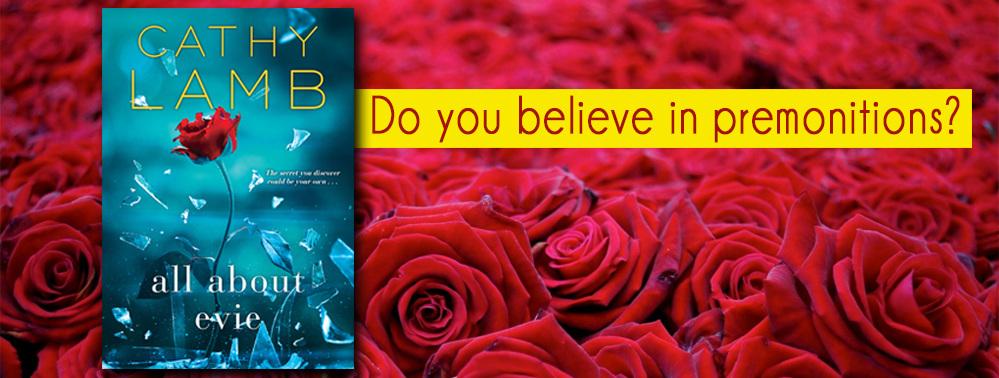

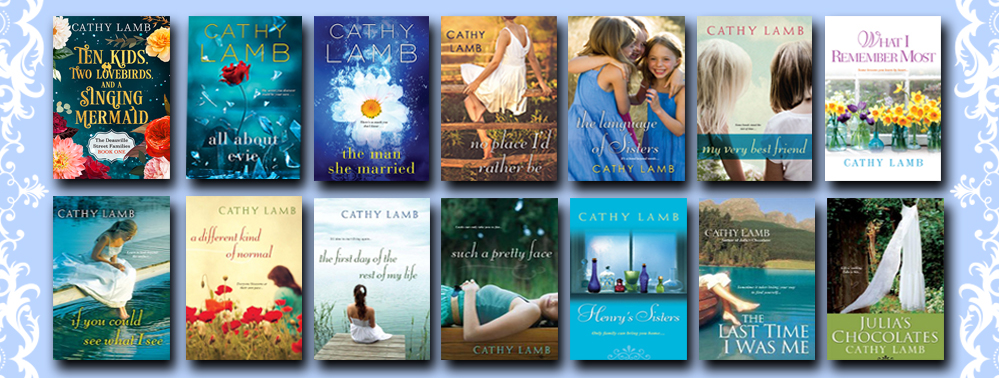

















 It was the pancakes.
It was the pancakes.








